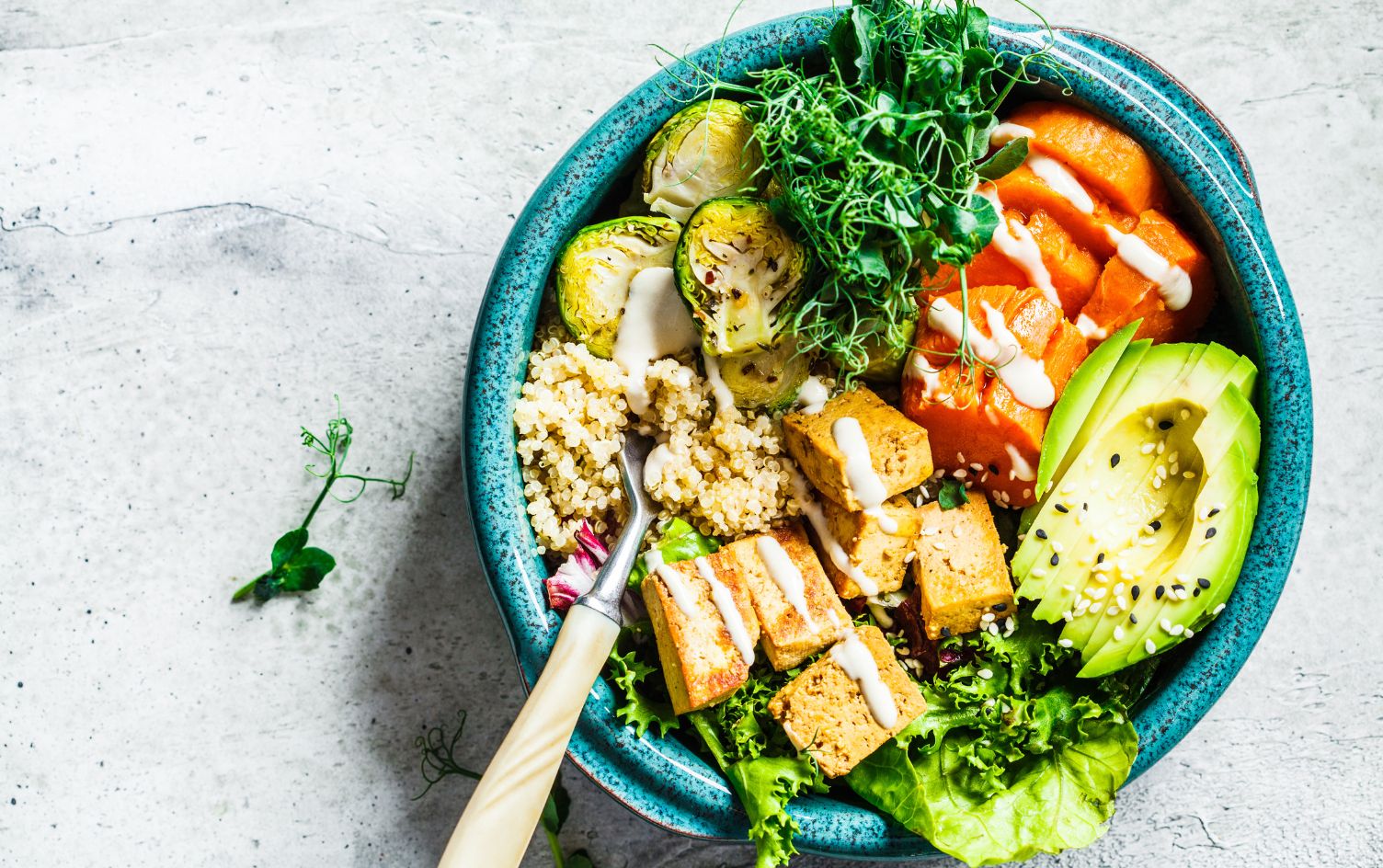The 100 trillion microorganisms living in your gastrointestinal tract make up the gut microbiome. Building a collection of good bacteria has been linked to fewer health issues ranging from metabolism, arthritis and depression to cancer, cardiovascular disease and lifespan.
“Gut health impacts so much more than digestion,” says Marisa Moore, RDN. “A healthy gut microbiome is important to your overall health.”
Case in point: Your immune function. “Approximately 70% of the body’s immune cells and tissue are located in the gut,” says Anna Binder-McAsey, RD. An imbalanced microbiome may leave you frequently battling sickness, food sensitivities, and increase the likelihood of developing chronic conditions.
Making small changes to the foods you eat can restore your gut to good health. While sugar and processed foods can wreak havoc on the gut microbiome, a healthy diet rich in fiber that includes these 15 foods can restore gut health:

Pectin, the soluble fiber in apples, improves insulin resistance, lowers cholesterol, and slows digestion, helping you feel full. A 2019 study published in Frontiers in Microbiology found pectin is also a prebiotic that promotes the growth of good gut bacteria. “Fiber, lots of fiber, is so important for gut health,” Moore says.

The popular tropical fruit is a top-logged food for MyFitnessPal users. Bananas are known to have high levels of potassium, and they contain two kinds of fiber: pectin, which helps with digestion, and resistant starch, which serves as food for beneficial gut bacteria. Resistant starch is higher in unripe bananas (aka the ones that are slightly more green). However, “even if you don’t like green bananas, which can taste a little bitter, you’ll still get great benefits from a nice bright yellow banana,” notes Binder-McAsey.

Look for opportunities to add more beans to your diet. Black beans are among the fiber-rich foods that have been shown to improve intestinal barrier function or the ability for your body to fight against disease-producing compounds. “Different beans have different nutrients,” Moore says. “Aim for a diversity of beans in your diet like black beans, pinto beans and lentils.”
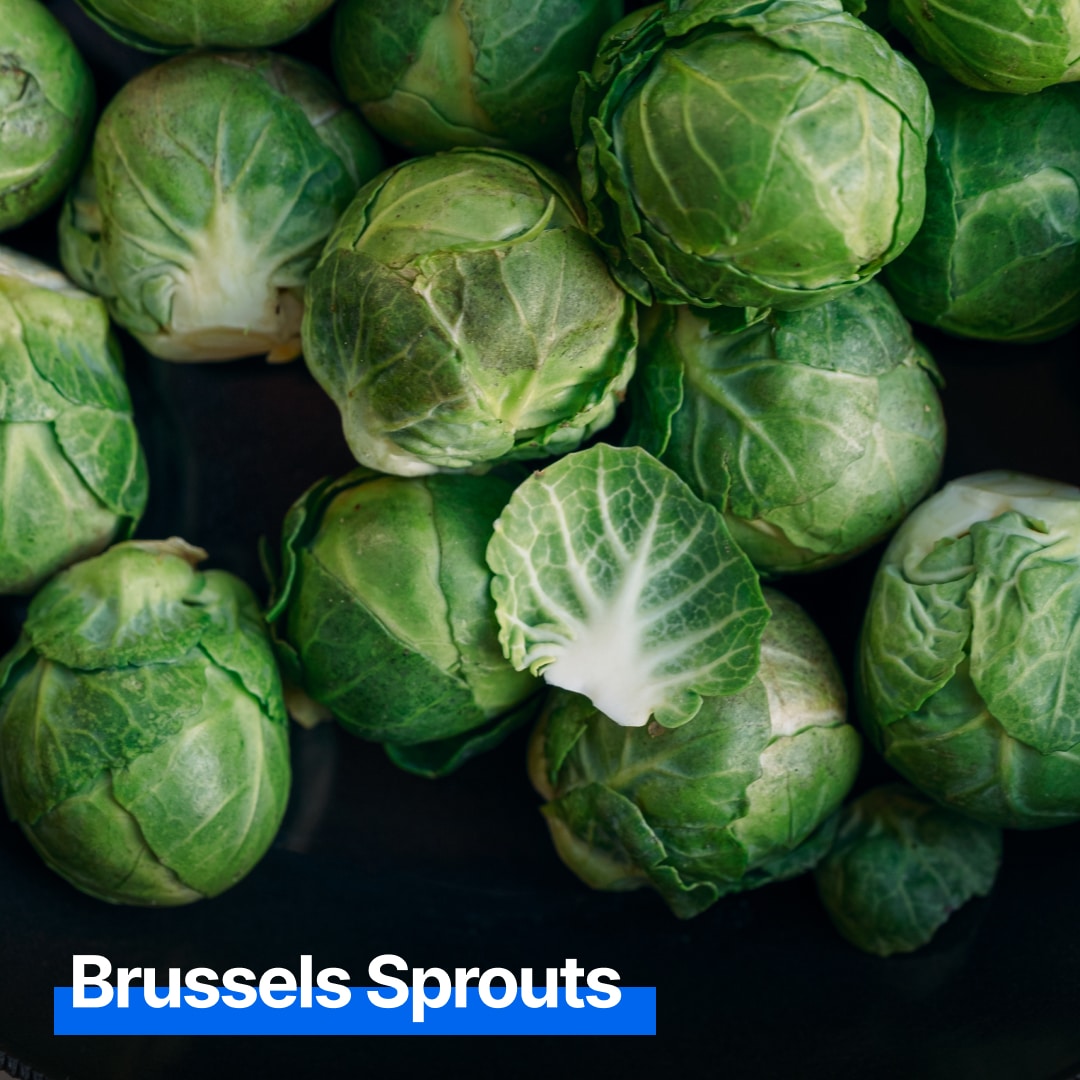
Brussels sprouts, broccoli, cauliflower, radish, bok choy, mustard greens and cabbage belong to the mustard family, says Binder-McAsey. These contain prebiotic fiber that acts as food for probiotics. Some people find these foods cause bloating, but they don’t have to. Excess gas “happens in part when there aren’t enough good probiotics in the gut to break down the prebiotic fibers in these foods,” she says. If you get gassy after a meal with a side of Brussels sprouts, she advises eating more probiotic-rich foods (e.g., kefir and yogurt also on this list) to populate your gut and then gradually increase your intake of veggies.
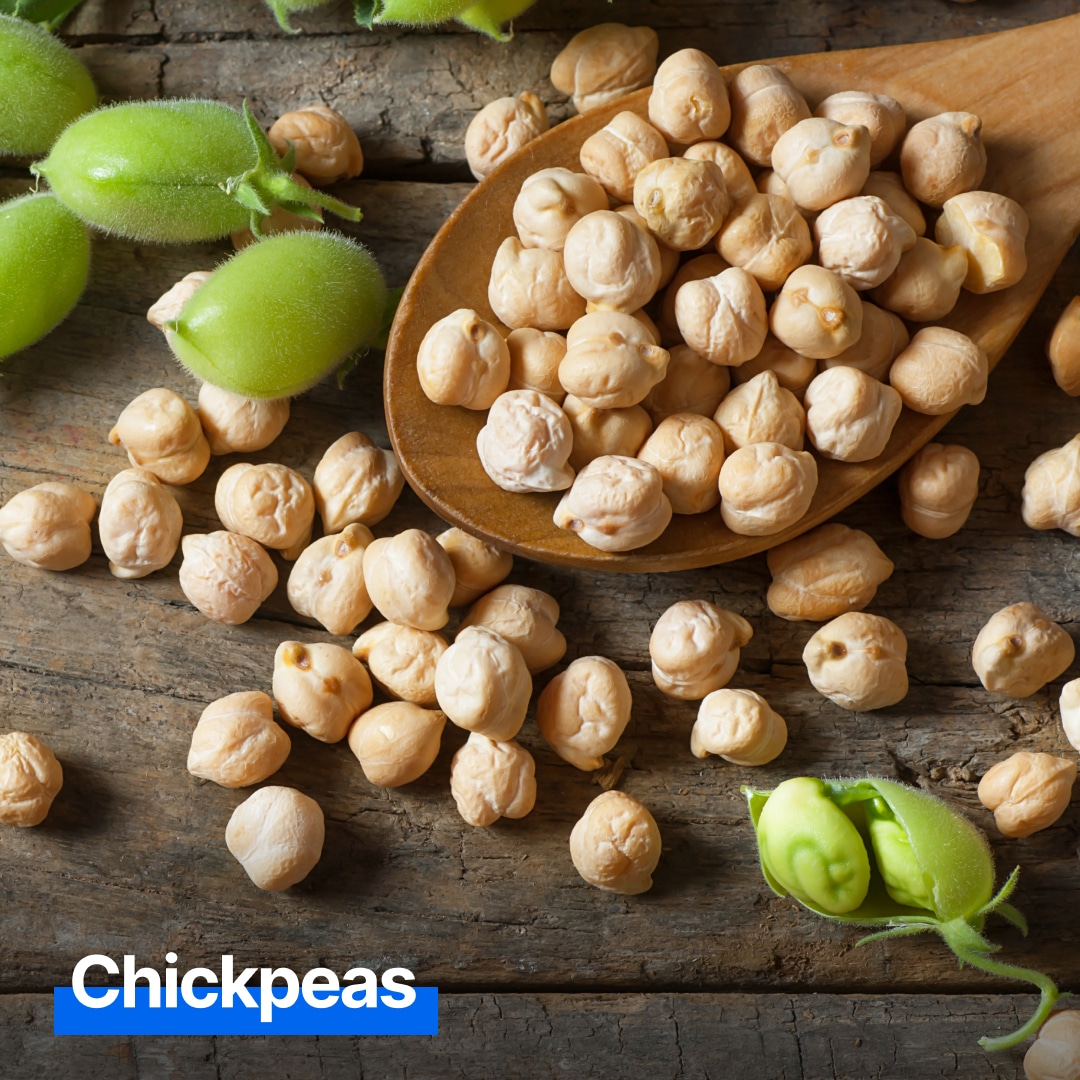
Chickpeas are a versatile legume that’s delicious roasted, added to salad, or crushed for hummus — and that’s just for starters. “There is pasta made from chickpea flour that tastes great,” Moore says. Thanks to protein and fiber, chickpeas, also called garbanzo beans, are a great source of plant-based prebiotics. Skip canned chickpeas, which have lower levels of prebiotic fiber than dried chickpeas.
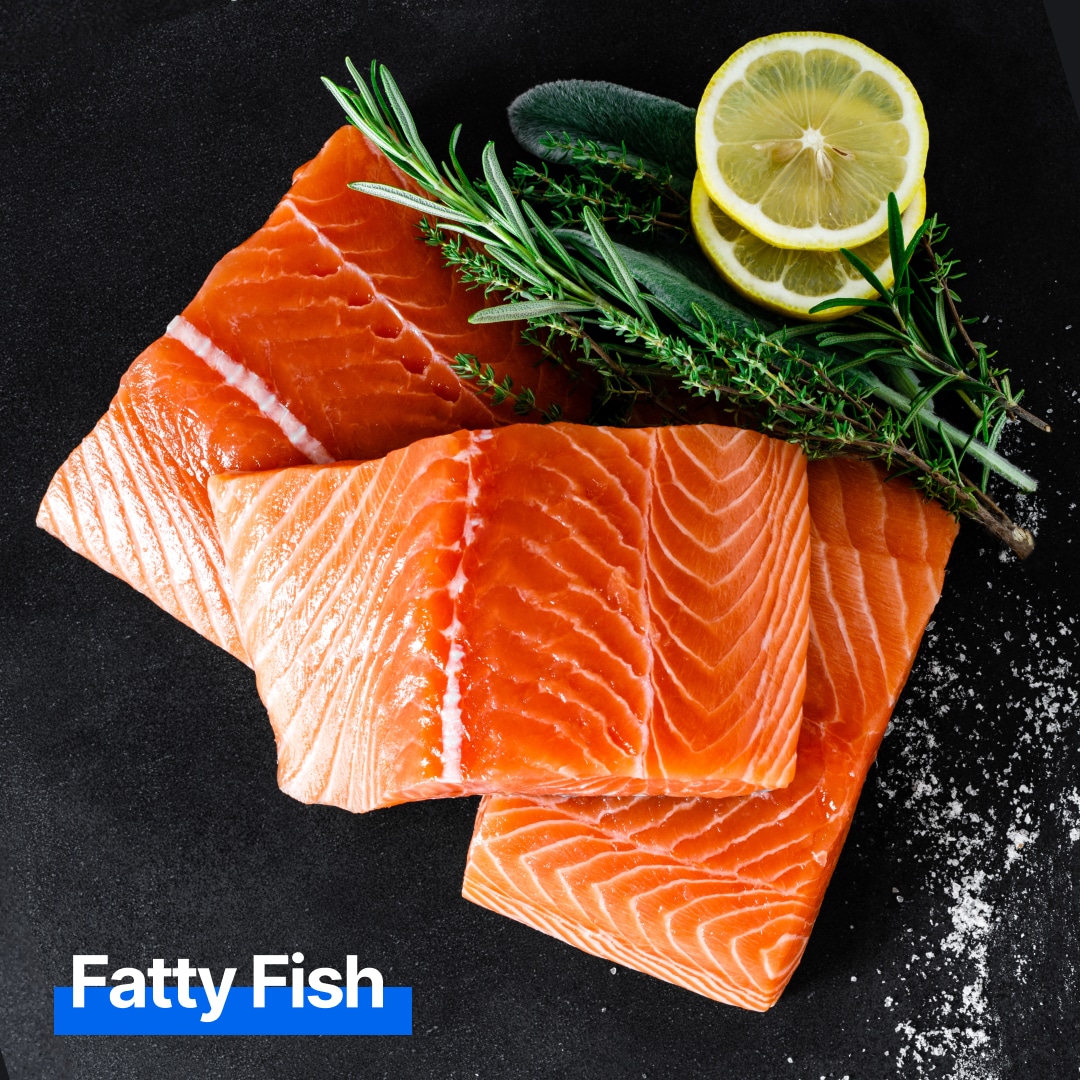
Fatty fish like salmon and sardines are a great source of protein and support gut health. They are rich in omega-3 fatty acids, polyunsaturated fatty acids that have been linked to cardiovascular health, mood regulation and help fight inflammation. “Chronic low-grade inflammation is one of the reasons behind poor gut health,” says Binder-McAsey. These fats may also increase the diversity of the gut microbiome, strengthening the gut lining. They also help feed “good” bacteria, research shows.
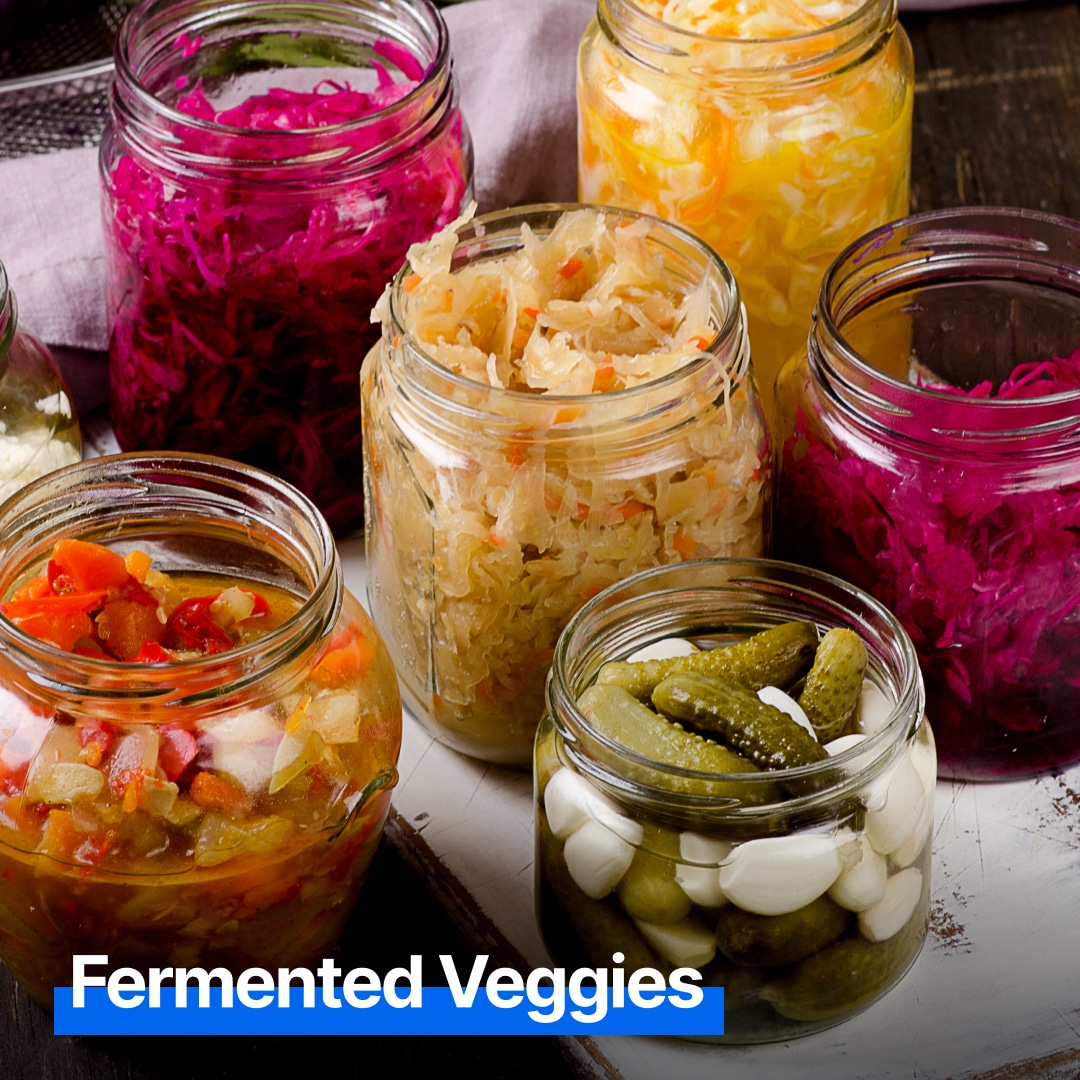
“Sauerkraut, kimchi and pickles are fermented vegetables that offer a great source of non-dairy probiotics,” says Binder-McAsey. However, the trick is to read the label because not all fermented vegetables on grocery store shelves contain live cultures. For example, many store-bought pickles are just pickled cucumbers,” she says. Fermentation is needed to create these live cultures, and is found in certain brands, like Bubbies, she says. Label lingo varies across brands, but look for words like “fermented” or “cultures.”
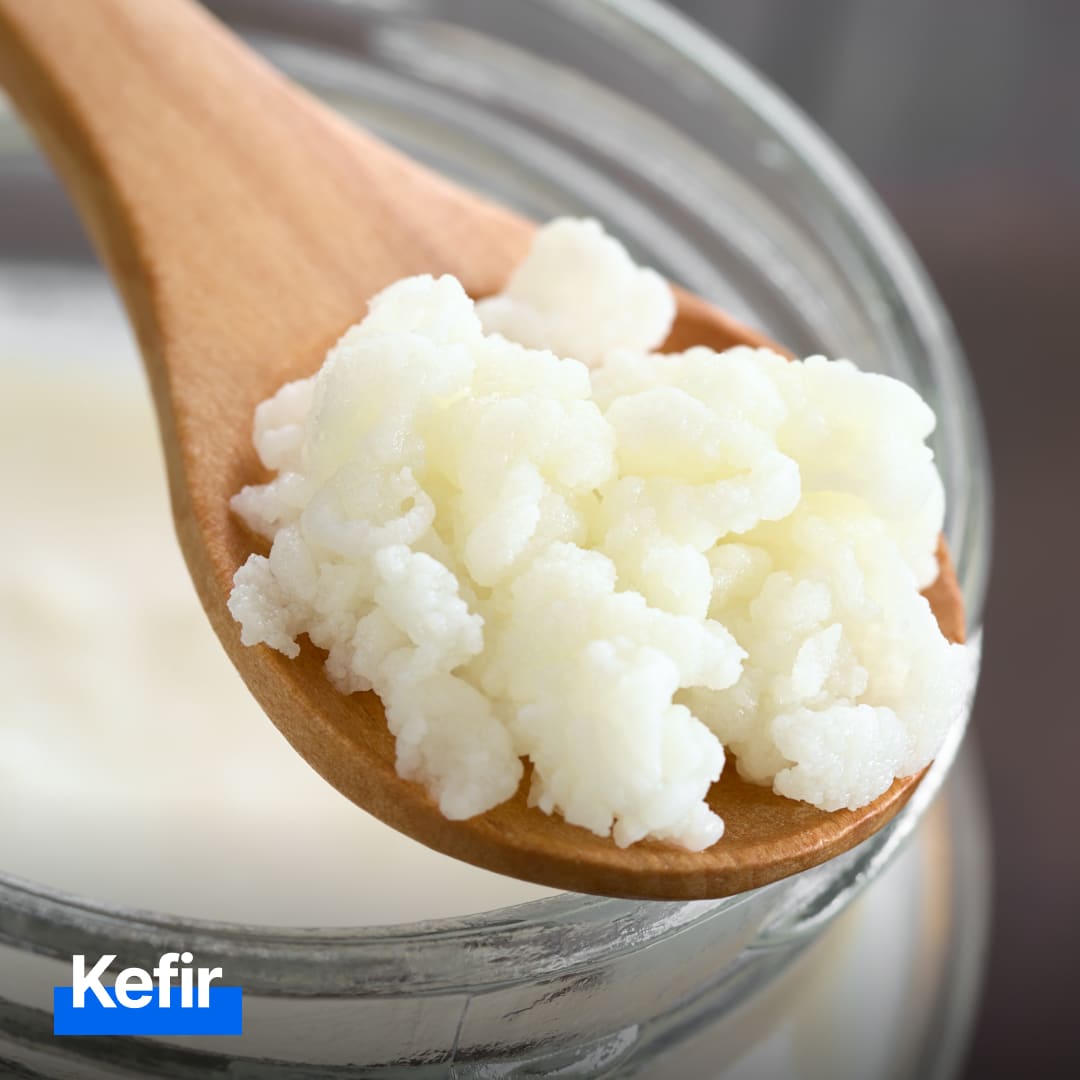
The fermented milk drink, like yogurt, contains probiotics. Kefir, which comes from the Turkish word for “feeling good,” is made by adding kefir grains to milk. The nutrient-rich drink contains protein, calcium, magnesium and vitamin B12; it also contains 61 strains of bacteria and yeast that contribute to good gut health. “Kefir is lower in lactose than yogurt, so it’s a good option if you’re lactose intolerant,” Young says. Pour kefir over cereal, add it to smoothies or drink it like a glass of milk.
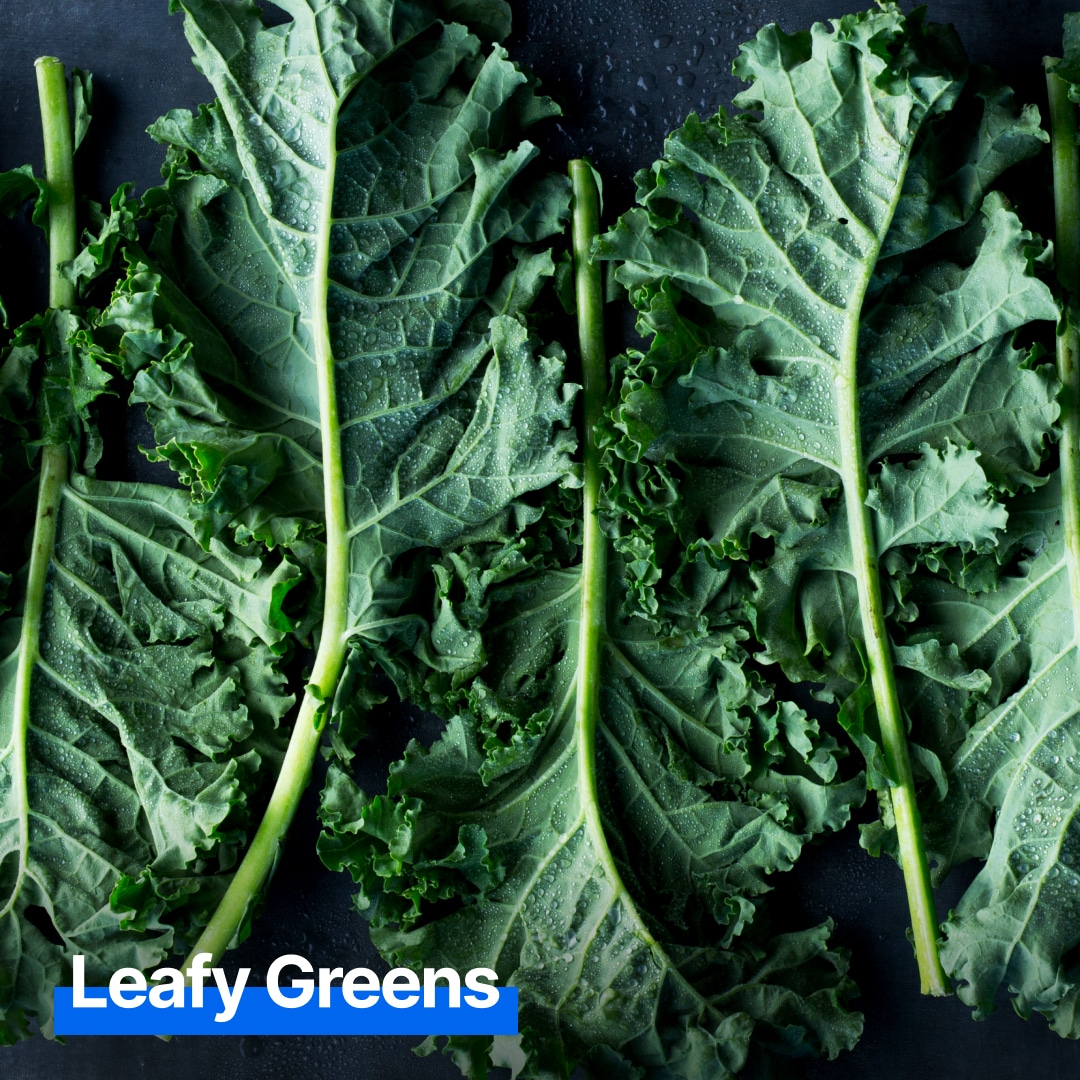
Leafy greens, including kale, spinach, endive, chard and beet greens are low in calories but rich in fiber, vitamins and minerals. “The fiber both helps with bowel regularity and acts as prebiotics that support the microbiome,” says Binder-McAsey. While eating raw or cooked greens is beneficial, if you’re aiming to add more fiber to your plate, go for cooked. For example, 1 cup of raw spinach contains 1/2 gram of fiber, while 1 cup of cooked spinach has nearly 5 grams of fiber, per the USDA.
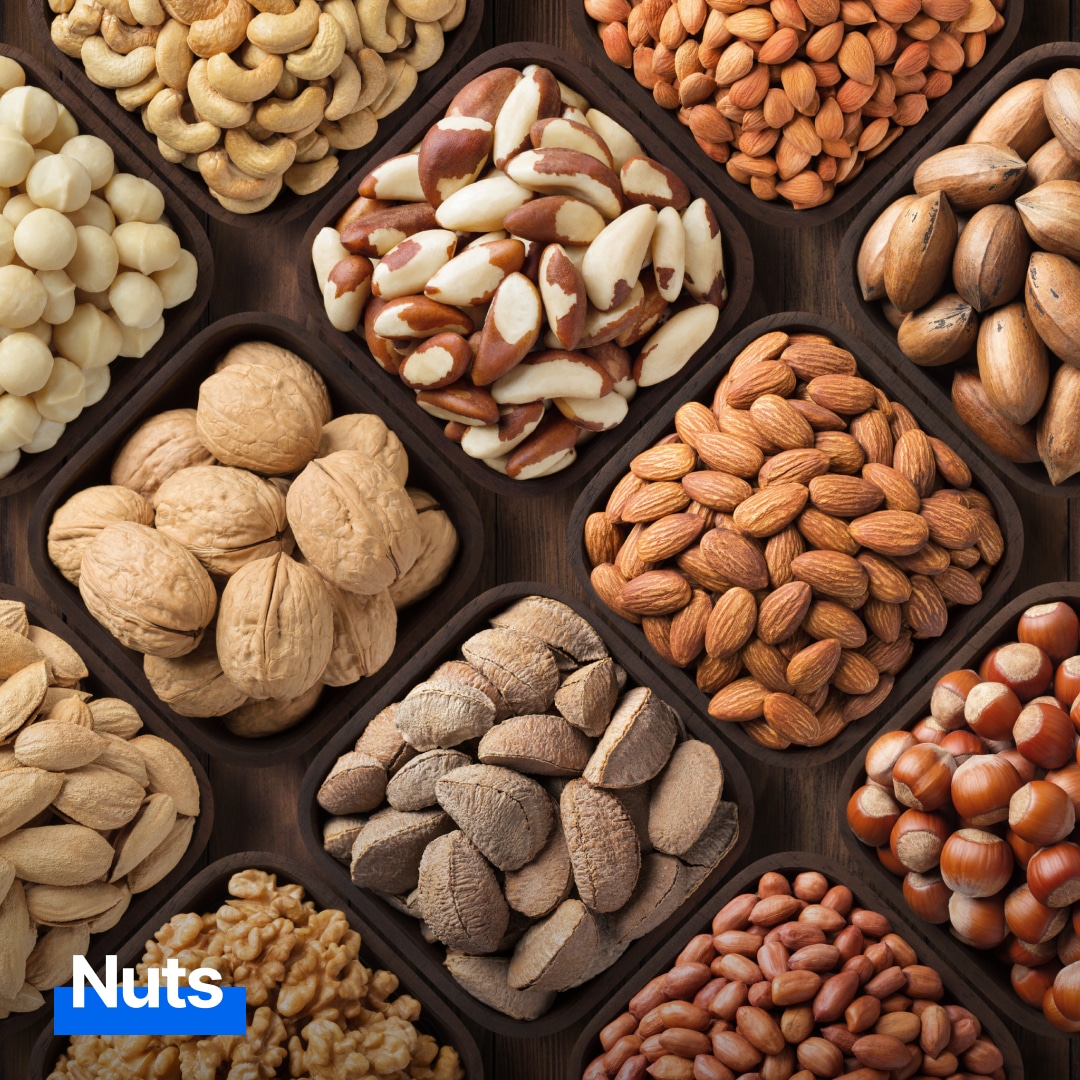
Almonds, walnuts and pecans are all good sources of fiber, which helps gut bacteria break down foods while providing important nutrients your body needs for digestion and overall health, Moore explains. Research published in The Journal of Nutrition found that eating 1/3 cup of walnuts over a six-week period increased the abundance of three specific bacteria that have a positive impact on the gut microbiome.
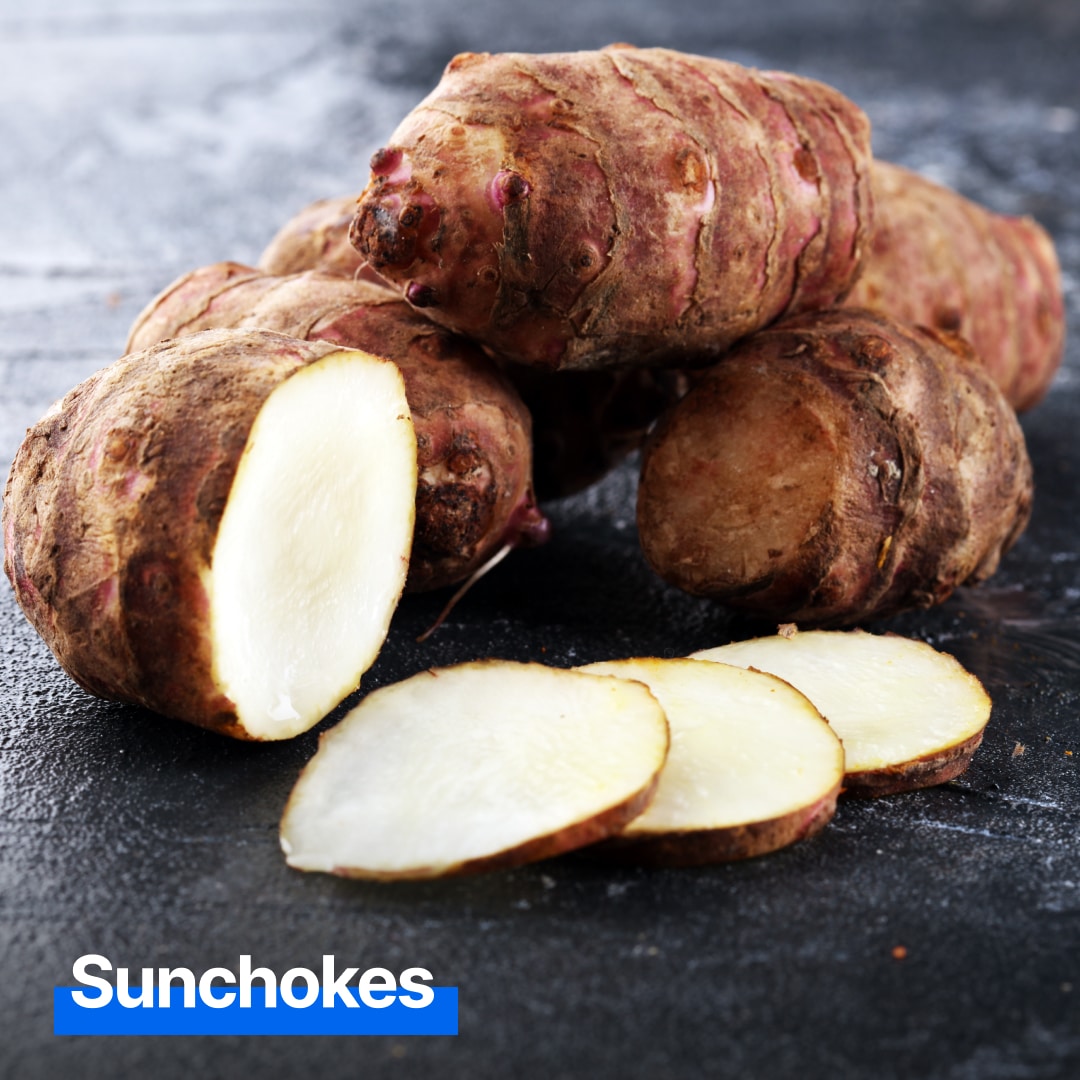
The root vegetable, also known as a Jerusalem artichoke, is considered a prebiotic, which is a type of dietary fiber that feeds good gut bacteria. Sunchokes could help lower blood cholesterol, prevent cell damage, and manage blood sugar. Moore loves roasted sunchokes but warns that the tasty vegetables can make you gassy. Her advice: Don’t overdo it.
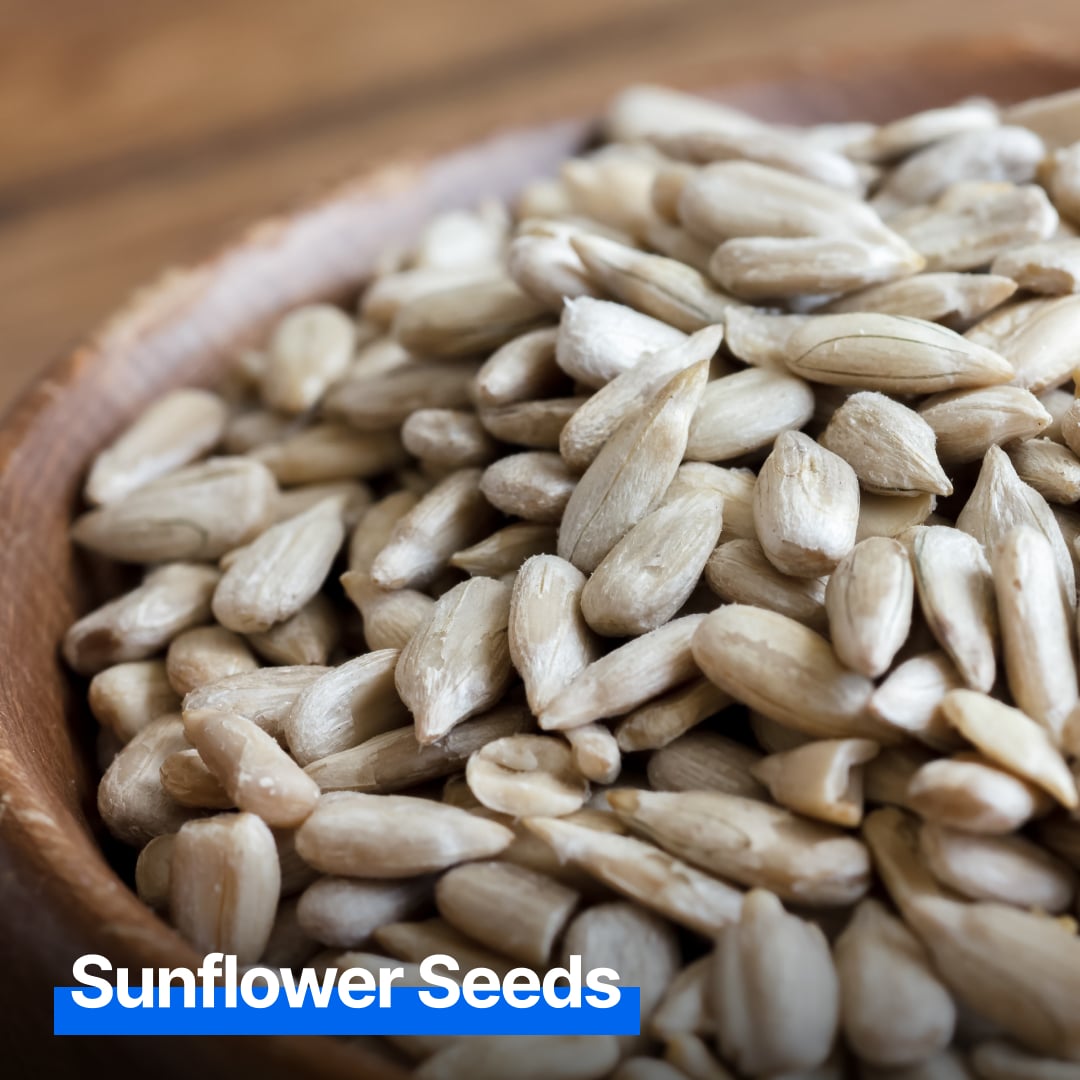
Unsalted seeds, including sunflower seeds, are excellent sources of fiber, which aids in digestion. Sunflower seeds also contain antioxidants like selenium and vitamin E to help protect cells and prevent chronic disease. Eating sunflower seeds five times per week was linked to lower levels of C-reactive protein, a marker of inflammation that is associated with heart disease and Type 2 diabetes. Eat raw seeds, add them to the tops of salads for extra crunch or cook with sunflower oil to get all of the benefits.
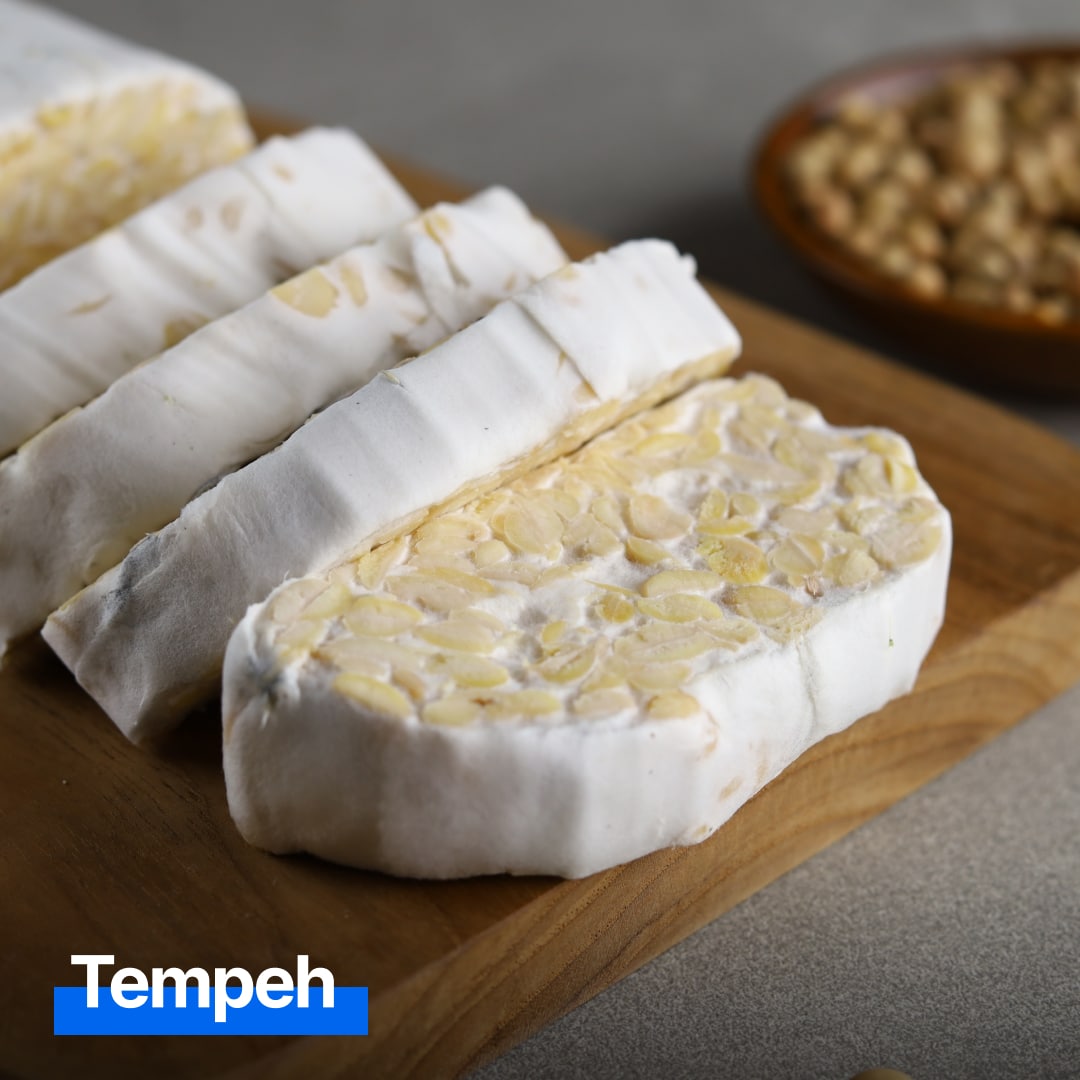
“Tempeh is an excellent plant-based protein made of fermented soybeans,” says Binder-McAsey. The fermentation process means tempeh is rich in probiotics, which stimulate the growth of gut bacteria, research shows. A 3.5-ounce serving of cooked tempeh contains 195 calories, 20 grams of protein and 8 grams of carbs. Even carnivores can enjoy the vegetarian protein, since it has a hearty, satisfying texture. If you need some recipe inspiration, you can’t go wrong with this tempeh pad Thai with broccoli and corn.

A diet rich in whole wheat, bulgar, oats and brown rice helps improve gut microbiota. Research published in the American Journal of Clinical Nutrition found that whole-grain diets helped increase the variety of gut bacteria, boosting the immune system and reducing inflammation compared to a diet rich in refined grains. Young recommends whole grains like oatmeal and quinoa if you’re on a gluten-free diet.

Yogurt is a probiotic powerhouse that contains good bacteria like Lactobacillus and Bifidobacterium, which help maintain digestive health. Yogurt is also chock full of calcium, protein and vitamin D. Lisa Young, PhD, RN, adjunct professor of nutrition at New York University and author of “Finally Full, Finally Slim,” advises eating plain yogurt with no-added sugar and steering clear of low-fat yogurt; research shows sugar and artificial sweeteners can destroy beneficial bacteria.
Originally published December 2019, updated with additional reporting by Jessica Migala in February 2021
Ready to take the next step? Unlock MyFitnessPal Premium to access custom goal settings, quick-log recipes, and guided plans from a registered dietitian. Premium users are 65% more likely to reach their weight loss goals!
